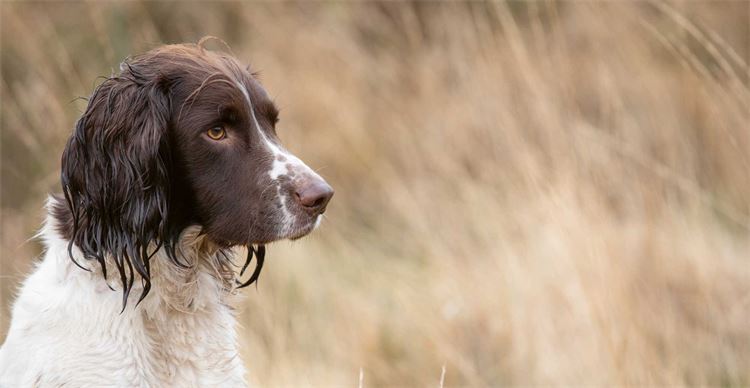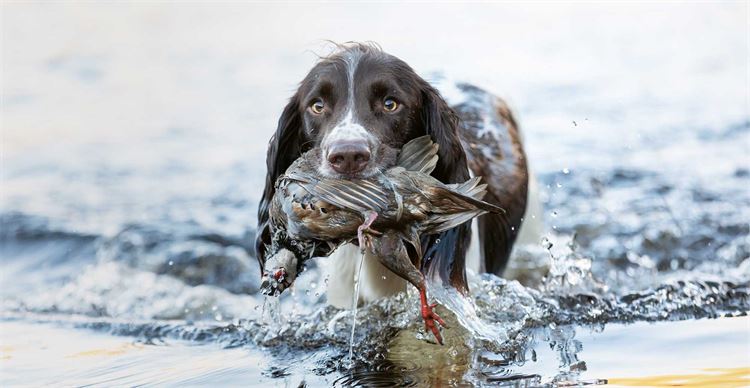In the course of my work I come across all kinds of dog owners. First time owners are often excited at the prospect of having a working dog but unaware of the training commitment this will bring. More seasoned handlers have chosen their dog with care for certain characteristics, perhaps with the memory of a former companion in mind to whom the new pup may unfortunately never compare.
As much of my training is on a one to one basis, I get to know the owners very well. We share the highs and lows of not only dog training, but other aspects of their lives too. Increasingly, I meet people who are struggling with their health, either mentally or physically. Often, the behaviour of their dog is not the only aspect of their lives that is causing them anxiety. Perhaps a reluctance to spend time training is a result of the reality of living with a physical illness.
Dogs on prescription
In my experience, there is very little that dog ownership can’t cure. Broken hearts, obesity, social anxiety, high blood pressure, grief - dogs should come as an NHS prescription. One of the joys of dog ownership is that it’s sociable. Whether it’s working your dog on a shoot or exercising them in the park, dog owners talk to one another. You have to leave the house to take your dog out so isolation is tackled on a daily basis. You should walk with your dog at least twice a day, so that’s your daily steps taken care of, plus fresh air and hopefully, a little sunlight. If you have the bond with your dog that every handler should have, you will have a companion that is always pleased to see you. They are known as best friends for a reason.
Handling with a disability
This brings me to Sam Barber and his springer spaniel, Harry. From a young age, Sam watched Hugh Fearnley-Whittingstall on television and became interested in the idea of self-sufficiency, catching his own game and eating it. This led to an ambition to work his dog on a shoot and so he approached a gundog trainer to help him achieve this aim. Over the course of a few lessons, he was told that his dog was no good and that Sam and his dog would never make it onto a shoot. Perhaps I should mention here that Sam has cerebral palsy, a lifelong condition that affects movement and mobility.
I am never afraid to take on a challenging dog or a despairing handler. After our initial conversations and then meeting up with Sam for the first time, I was disappointed at the way he had been treated. There are good dogs and there are great dogs, but to write off a dog and an owner, to deny them access to a long held dream, that is harsh. Training gundogs is by no means a soft touch profession but we’re not only working with dogs, we’re working with humans too and we have a responsibility to our customers.
Meeting challenges
Over the past two years with Sam I have had to adapt many techniques to accommodate his physical restrictions. Sam couldn’t work as a beater because of his limb limitations, so we have been training Harry, a very headstrong and enthusiastic springer, as a peg dog for picking-up. This has presented its own set of challenges; Sam was told when enquiring about shoots that he would never pick-up with a springer. Each setback has left Sam all the more determined to succeed. It’s certainly a lesson to us all that, no matter what our background, wealth, age or ability, we should encourage and help everyone who wants to be involved in country sports.
I often have to pull my clients up on the lack of effort they put into their training. This has never happened with Sam. I have seen 100 per cent commitment from him at every training session, and from the work he has put in between lessons. When something that we all take for granted, walking across the fields with our dogs, is more like a mountain climb, his achievements are beyond impressive. In Sam’s own words: “I have seen massive improvements in my dog and also myself. Damian has given us both a lot of confidence, he shows me where I am going wrong and how to correct it.”

A dream fulfilled
Last season Sam attended his first shoot in Rutland and thoroughly enjoyed the day: “We visited the Thistleton Shoot and over five drives Harry picked up 25 birds.” Sam received compliments on Harry’s training, that he didn’t run in on drives but sat well on peg. With Sam’s disability, it is especially important that his dog responds well to the stop whistle and to direction. Despite other dogs running in to pick-up, Sam stuck to shoot etiquette and as a result was invited back.
For the remainder of the season, Sam and Harry picked-up at the Upperwood Shoot on Saddleworth Moor. Of course he has more to learn and work on over the summer months, and this is the case with any novice on a shoot. However, this season has not just been a one-off dream fulfilled, a whole new world is opening up for him.
Sam’s physical disability is for life - nothing can change that but everything else can change. Fieldsports have given him purpose, ambition and joy. He has proved the doubters wrong and grown in his self-esteem - what an achievement. And he told us a little more about his ambitions and the support he has received from the shooting community: “The only thing I am trying to do is show people it can be done. And that if you put yourself out there and ask for help people will step forward. Everyone has been really supportive on the shoot days. For instance if I can’t get somewhere the keeper will take me in the Gator and others will offer to undertake a long retrieve when it’s obvious I won’t be able to make it. From a young age I have always been told I couldn’t walk so I’m used to overcoming pessimistic forecasts. It’s about willpower. If you’ve got enough determination, enough fire in your belly, enough grit in your teeth then anything is achievable. Just because you have a disability you can’t expect to be spoon-fed. Put your disability to to one side and get on with it. Don’t sit back and let life go on without you.
“Also it’s very interesting to see the assumptions people make. They tend to think that shooting is only for the upper class, but I’m a 25-year-old joiner. All you need is a pair of wellies and a coat to get involved in beating and then a dog if you want to go picking-up. I think shooting is missing a trick by not publicising the diversity of backgrounds of the people on shoot days. It needs publicising that shooting helps many people in many different ways. For me at the very least it provides great exercise for us both, but it’s given me a lot more than that.
“I have thoroughly enjoyed attending the shoots this season and we have been invited back next season so we are already looking forward to it. I am hoping more people with a physical disability will read my story and not let it defeat them. I have been left overwhelmed with the amount of support I have received and the opportunities the shooting community has provided. These people have helped me achieve my dreams.”
How dogs lead to contentment
Is your gundog also your therapist?
Can you imagine life without them? Do you lose yourself in the routine of taking care of them? Do you focus so hard on their training that every other thought disappears from your head? This is the way it should be. I see lots of owners for whom gundog training has become a form of therapy. Issues such as anxiety, depression and grief are worked out through forming a bond with their dog.
It’s good to see that week after week, the owners who come to me with the world on their shoulders gradually lift their heads. They see the potential in their dog and that gives them a focus. They feel fitter and more able to enjoy their country pursuits. There is something to strive for, an achievement on the horizon. The country sports community has an important role to play in using these benefits for the wellbeing of a wider audience. The more we diversify, the more we attract those not traditionally associated with field sports, the more people will benefit from this lifestyle that we enjoy.

Dog training helps children focus
I see the benefits of gundog training with young handlers too. They find a new focus and forget their screens as they spend time outdoors achieving small victories, week by week. My training method is built on the foundation of the bond with your dog. This is intense and when you’re young, it will occupy you before school, after school and at the weekends. Once that bond is built, it’s unbreakable and that young person will have a friend who will never let them down.
Seeing the light
Many clients with gundog breeds initially have no intention of working their dogs. They come for training because they are experiencing the behavioural issues you would expect from working breeds - running off, lack of recall, poor focus. I encourage these clients to train their dog to their breed standard and during that process, something happens. The owners get hooked on the idea of working their dog. Every year I have clients taking their dogs into the shooting field for the first time. The rewards they experience are immense - seeing just how much you can achieve with your working dog is a great feeling.
Don’t let your physical condition or your mental state stop you from enjoying your dog. Let them inspire you to do greater things. As we have seen from Sam Barber’s gundog journey, anything is possible with drive and commitment. If you need some help in taking a step in the right direction, find a gundog trainer who will support you in your goals. Set yourself achievable targets and stick to them - it took years for Sam to get on a shoot, but he got there in the end. Let yourself into the secret of a happy, healthy life and spend more time with your gundog.
Damian Barson runs Tessleymoor Gundogs.